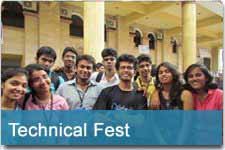Outcome Based Learning
|
Outcome-Based Education (OBE) at AI&ML department is a student-centered approach that focuses on measurable outcomes and achievements, emphasizing assessing students' knowledge, skills, and abilities through enriched curriculum, co-curriculum and innovative extra curriculum and research activities. It includes components such as the success rate of students, eligibility for placement, student placement, and the ability to appear for competitive exams. OBE prioritizes student success by monitoring the success rate, implementing creative pedagogy for teaching methods and strong support systems to students. It also aligns the curriculum with industry standards to ensure students possess the necessary skills for their careers as AIML engineers. OBE prepares students for competitive exams by providing comprehensive training and aligning the curriculum with examination requirements. Along with technical education, aptitude, attitude, skills, and behavior are crucial for success. Department also takes care of positive attitudes, nurtures aptitudes by creating supportive environments, offering career guidance, modeling professionalism, and providing personalized support and promotes professional skills by offering HME components which are integrated in the curriculum itself. At Institute level with the support of department OBE enhances institutional reputation, supports accreditation processes, and prepares students for further education, employment, and entrepreneurship ability. Strengthening the curriculum, innovative assessment methods, and evaluation processes are integral to the success of OBE, enabling students for successful careers in AIML. |
Program Educational Objectives (PEO)
(Batch 2020-24, 2021-25)
| PEO 1: | To attain good technical Knowledge and competency in conception, design, and implementation of engineering systems with a strong commitment to lifelong learning. |
| PEO 2: | To attain engineering and managerial decision-making capability that are of high ethical and professional standards. |
| PEO 3: | To develop leadership qualities for engaging diverse teams through effective communication, strong interpersonal and project management skills to establish themselves as professional engineers in the international arena. |
(Batch 2022-26)
| PEO 1: | To attain good technical Knowledge and research competency in conception, design, and implementation of engineering systems with a strong commitment to lifelong learning. |
| PEO 2: | To attain engineering and managerial decision-making capability that are of high ethical and professional standards. |
| PEO 3: | To develop leadership qualities for engaging diverse teams through effective communication, strong interpersonal and project management skills to establish themselves as professional engineers in the international arena. |
(Batch 2023-27)
| PEO 1: | To attain good technical knowledge with research competency enabling them to adapt to emerging technologies. |
| PEO 2: | To adapt and continuously work towards skill development and innovation to build intelligence into machines for societal applications. |
| PEO 3: | To become globally employable with leadership qualities, effective communication skills, professional ethics with lifelong learning. |
Program Outcomes (PO)
Batch (2021-25)
| PO 1 | ENGINEERING KNOWLEDGE: Apply Knowledge of Mathematics, Science, engineering fundamentals and an engineering specialization to the solution of complex engineering problems |
| PO 2 | PROBLEM ANALYSIS: Identify, formulate, research literature, and analyze complex engineering problems reaching substantiated conclusions using first principles of mathematics, natural sciences, and engineering sciences. |
| PO 3 | DESIGN / DEVELOPMENT OF SOLUTIONS: Design solutions for complex engineering problems and design system components or processes that meet specified needs with appropriate consideration for public health and safety, cultural, societal, and environmental considerations. |
| PO 4 | CONDUCT INVESTIGATIONS OF COMPLEX PROBLEMS: Using research-based knowledge and research methods including design of experiments, analysis and interpretation of data and synthesis of information to provide valid conclusions |
| PO 5 | MODERN TOOL USAGE: Create, select, and apply appropriate techniques, resources and modern engineering and IT tools including prediction and modelling to complex engineering activities with an understanding of the limitations. |
| PO 6 | THE ENGINEER AND SOCIETY: Apply reasoning informed by contextual knowledge to assess societal, health, safety, legal and cultural issues and the consequent responsibilities relevant to professional engineering practice. |
| PO 7 | ENVIRONMENT AND SUSTAINABILITY: Understand the impact of professional engineering solutions in societal and environmental context and demonstrate knowledge of and need for sustainable development. |
| PO 8 | ETHICS: Apply ethical principles and commit to professional ethics and responsibilities and norms of engineering practice. |
| PO 9 | INDIVIDUAL AND TEAM WORK: Function effectively as an individual, and as a member or leader in diverse teams and in multi-disciplinary settings. |
| PO 10 | COMMUNICATION: Communicate effectively on complex engineering activities with the engineering community and with society at large, such as being able to comprehend and write effective reports and design documentation, make effective presentations and give and receive clear instructions. |
| PO 11 | LIFE-LONG LEARNING: Recognize the need for and have the preparation and ability to engage in independent and life-long learning in the broadest context of technological change. |
| PO 12 | PROJECT MANAGEMENT & FINANCE: Demonstrate knowledge and understanding of engineering and management principles and apply these to one’s own work, as a member and leader in a team, to manage projects in multidisciplinary environments. |
Batch (2022-23,2023-27)
| PO 1 | ENGINEERING KNOWLEDGE: Apply Knowledge of Mathematics, Science, engineering fundamentals and an engineering specialization to the solution of complex engineering problems |
| PO 2 | PROBLEM ANALYSIS: Identify, formulate, research literature, and analyze complex engineering problems reaching substantiated conclusions using first principles of mathematics, natural sciences, and engineering sciences. |
| PO 3 | DESIGN / DEVELOPMENT OF SOLUTIONS: Design solutions for complex engineering problems and design system components or processes that meet specified needs with appropriate consideration for public health and safety, cultural, societal, and environmental considerations. |
| PO 4 | CONDUCT INVESTIGATIONS OF COMPLEX PROBLEMS: Using research-based knowledge and research methods including design of experiments, analysis and interpretation of data and synthesis of information to provide valid conclusions |
| PO 5 | ENGINEERING TOOL USAGE: Create, select, and apply appropriate techniques, resources and modern engineering and IT tools including prediction and modelling to complex engineering activities with an understanding of the limitations. |
| PO 6 | THE ENGINEER AND THE WORLD: Apply reasoning informed by contextual knowledge to assess societal, health, safety, legal and cultural issues and the consequent responsibilities relevant to professional engineering practice. |
| PO 7 | ETHICS: Apply ethical principles and commit to professional ethics and responsibilities and norms of engineering practice. |
| PO 8 | INDIVIDUAL AND COLLABORATIVE TEAM WORK: Function effectively as an individual, and as a member or leader in diverse teams and in multi-disciplinary settings. |
| PO 9 | COMMUNICATION: Communicate effectively on complex engineering activities with the engineering community and with society at large, such as being able to comprehend and write effective reports and design documentation, make effective presentations and give and receive clear instructions. |
| PO 10 | LIFE-LONG LEARNING: Recognize the need for and have the preparation and ability to engage in independent and life-long learning in the broadest context of technological change. |
| PO 11 | PROJECT MANAGEMENT & FINANCE: Demonstrate knowledge and understanding of engineering and management principles and apply these to one’s own work, as a member and leader in a team, to manage projects in multidisciplinary environments. |
Program Specific Outcome (PSO)
| PSO 1: | Ability to identify interdisciplinary problems related to various sectors in order to evolve novel and Sustainable solutions by using research techniques and concepts of Artificial Intelligence and Machine Learning. |
| PSO 2: | Ability to apply practices of Artificial Intelligence and Machine Learning by appropriate selection of tools and technologies for different use cases to build new-age products and services for Society. |
| PSO 3: | Ability to pre-process data sets to extract insights by applying various data pre-processing techniques. |
| PSO 4: | Ability to use Artificial Intelligence and Machine Learning models on data for enabling better decision making. |
Program Specific Outcome Batch(2021-25)
| PSO 1: | Ability to identify interdisciplinary problems related to various sectors in order to evolve novel and Sustainable solutions by using research techniques and concepts of Artificial Intelligence and Machine Learning. |
| PSO 2: | Ability to apply practices of Artificial Intelligence and Machine Learning by appropriate selection of tools and technologies for different use cases to build new-age products and services for Society. |
| PSO 3: | Ability to pre-process data sets to extract insights by applying various data pre-processing techniques. |
| PSO 4: | Ability to use Artificial Intelligence and Machine Learning models on data for enabling better decision making. |
Program Specific Outcome Batch(2022-26)
| PSO 1: | Ability to contribute to problem identification, analysis, design, and development of systems using principles and concepts of Artificial Intelligence and Machine Learning. |
| PSO 2: | Ability to apply the concepts, principles and practices of Artificial Intelligence and Machine Learning and critically evaluate the results with proper arguments, selection of tools and techniques when subjected to loosely defined scenarios. |
| PSO 3: | Ability to use Artificial Intelligence and Machine Learning models on data for enabling better decision making. |
Program Specific Outcome Batch(2023-27)
| PSO 1: | Graduates of AI&ML will be able to apply knowledge of human cognition through the use of modern tools and techniques related to AI, ML and Data Engineering inclusive of holistic and multidisciplinary learning. |
| PSO 2: | Graduates of AI&ML will be able to evaluate challenges of AI&ML driven industry verticals and provide sustainable solutions. |


